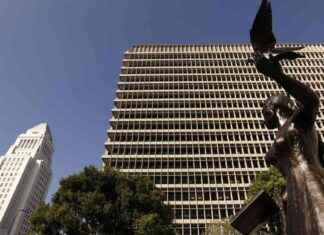You can recycle, compost, and even biodegrade in the marine environment. So is the new plastic that is being built at the innovation centre of Ecoembes, TheCircularLab, based in the city of Logroño (La Rioja). The purpose of this project is to contribute to the packaging of the future will be more sustainable, and therefore to eliminate the negative impact they have on the environment.
The main feature and novelty of this new plastic is that it is a material biobasado, that is to say, is obtained from waste vegetables such as carrots, potatoes or any other waste plant, instead of petroleum. To carry out its manufacture, the researchers of this center of innovation, along with specialists from the technological centre AINIA, have been party of a vegetable waste from municipal markets, and that may no longer be used for sale to the public to be in poor condition or in the process of decomposition.
“We have taken advantage of these products that can no longer be sold, and that will probably end up in the trash can for the manufacture of this new plastic. We didn’t want from crops or land that is used for the production of food,” explains Jorge García, specialist in innovation of Ecoembes, in a day of open doors in TheCircularLab which could assist Role.
Containers made with the new bioplastic designed in The Circular Lab. ECOEMBES
“bioplastics are all those which have a plant origin or that are biodegradable. However, this new material is the only one that is bio-bio, because it meets the two characteristics”, adds García. Which is a material that comes from raw 100% organic decomposition could be, according to the experts of the project, an alternative to treat the waste coming from municipal markets and other facilities that generate large quantities of this type of waste. In this way, it would not only be recycled, but also to lessen the wastage of food everyday.
in Addition, this fact would also help to lay the foundations of a revolution in the field of circular economy. Because “a world circular, it is possible,” says Óscar Martín, ceo of Ecoembes. “We must leave behind the philosophy of the produce, use and throw to get us into the new paradigm of the circular economy and well to be able to respond to environmental challenges such as climate change, pollution or the efficient use of energy,” he said. For this reason, the creation of this new plastic is “a revolution”.
The development of this new plastic began six months ago and are still in the prototype stage. According to estimates García, in a period of about five years may be available for the common use; when it has passed all the safety checks and the relevant legislation. “The new plastic sustainable is the germ of a new development based on the circular design, and one of the examples of how they will be packaging in the future,” says Zechariah Torbado, coordinator of TheCircularLab.
To achieve this new material, is crushed the plant residues and extracts its glucose, which is food for an organism which is responsible for producing the biopolymer with which it is made. This new plastic is intended to be used in the manufacture of containers such as bottles or trays for food and drinks, to the equal that the rest of the plastic packaging. The difference is that in addition to updating, this new plastic can be composted and even biodegrar in the sea.
“This does not mean that you have to recycle them, means that if, for some reason, these containers fall into the sea, biodegradarían. But, again, there are that recycle them”, explains Luis Gil, of the department of technologies of container of Ainia. This new material, added the expert, form part of the current attempt to use the least material as possible, recycle everything possible and use biodegradable materials. “It is a solution more towards a trend that we are marking the European Commission and the Environment”, account.
According to the professional, “the plastic has some very important features in the conservation of food, for example, a meat, is best stored in a plastic container”. So this is not bad for the Environment, that is to say, “what is bad is the management that we do of him. So it is essential to manage it properly. If the plastic is recycled, nothing happens, but the awareness still needs to be higher, because it does not recycle all that is needed and we must recycle all the plastic that gets into our hands,” he concludes.
A motor for the circular economy
may 17, 2017, coinciding with the World Day of Recycling, opened its doors TheCircularLab, the center of innovation of Circular Economy of Ecoembes, which is also pioneering in all of Europe. Since its inception, they have launched more than 100 projects; it has created an ecosystem of entrepreneurship which form part of more than 200 external collaborators, 55 students, and a community of 20 entrepreneurs, selected from more than 150 of the five continents that are part of the accelerator start-ups that owns the center. This center is based on an ecosystem of open innovation, and investigates on four lines of innovation. (1) Pack of the future, (2) Smartwaste (smart management of waste), (3) citizen Science and (4) Entrepreneurship, through their acceleration programs for startups. All with the aim of promoting the circular economy through recycling, and in particular, to containers: to make packaging more sustainable for the environment.
The recycling of the future
Series on circular economy in collaboration with Ecoembes
According to the criteria of
Learn more






